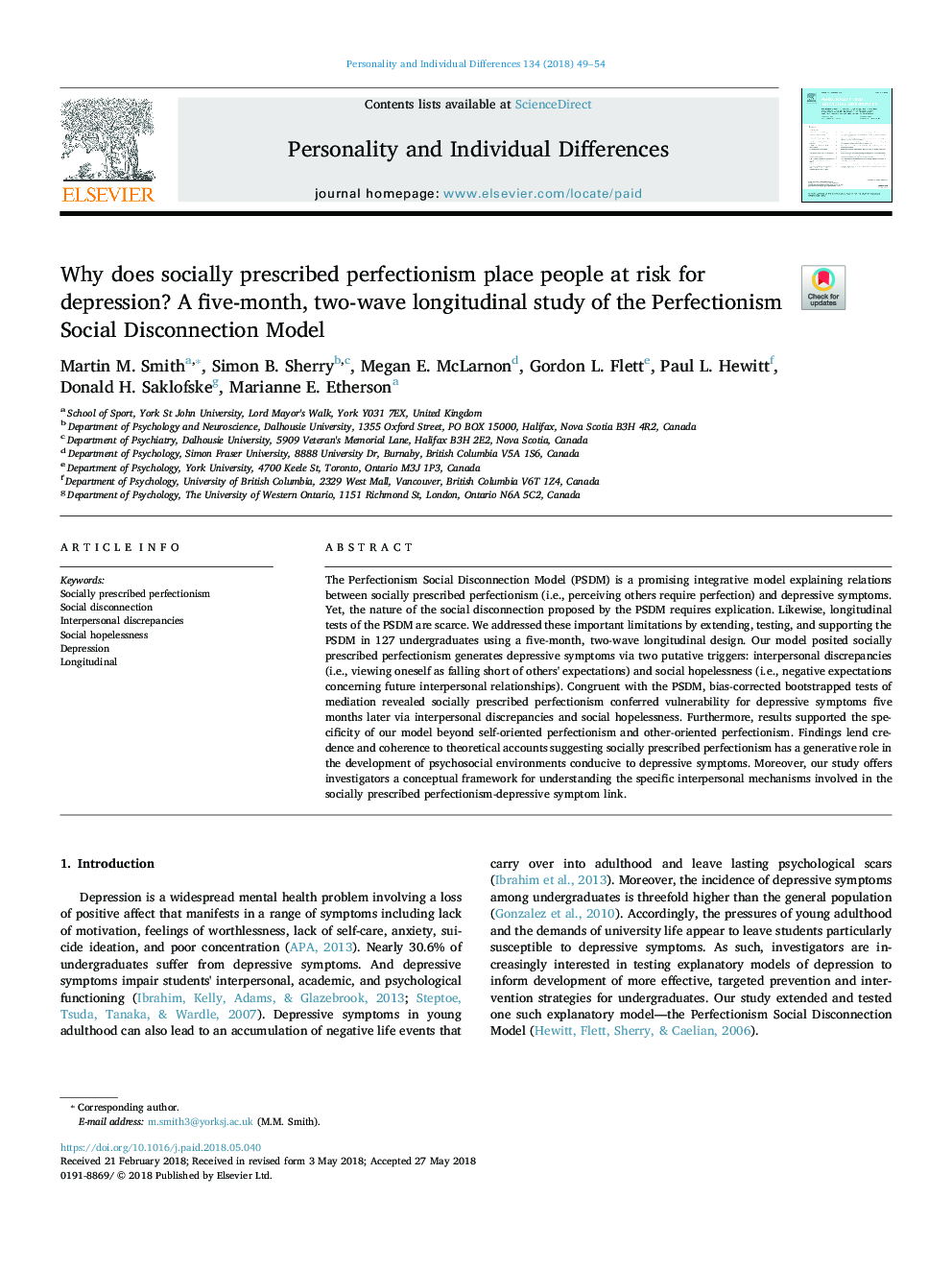| Article ID | Journal | Published Year | Pages | File Type |
|---|---|---|---|---|
| 7248372 | Personality and Individual Differences | 2018 | 6 Pages |
Abstract
The Perfectionism Social Disconnection Model (PSDM) is a promising integrative model explaining relations between socially prescribed perfectionism (i.e., perceiving others require perfection) and depressive symptoms. Yet, the nature of the social disconnection proposed by the PSDM requires explication. Likewise, longitudinal tests of the PSDM are scarce. We addressed these important limitations by extending, testing, and supporting the PSDM in 127 undergraduates using a five-month, two-wave longitudinal design. Our model posited socially prescribed perfectionism generates depressive symptoms via two putative triggers: interpersonal discrepancies (i.e., viewing oneself as falling short of others' expectations) and social hopelessness (i.e., negative expectations concerning future interpersonal relationships). Congruent with the PSDM, bias-corrected bootstrapped tests of mediation revealed socially prescribed perfectionism conferred vulnerability for depressive symptoms five months later via interpersonal discrepancies and social hopelessness. Furthermore, results supported the specificity of our model beyond self-oriented perfectionism and other-oriented perfectionism. Findings lend credence and coherence to theoretical accounts suggesting socially prescribed perfectionism has a generative role in the development of psychosocial environments conducive to depressive symptoms. Moreover, our study offers investigators a conceptual framework for understanding the specific interpersonal mechanisms involved in the socially prescribed perfectionism-depressive symptom link.
Related Topics
Life Sciences
Neuroscience
Behavioral Neuroscience
Authors
Martin M. Smith, Simon B. Sherry, Megan E. McLarnon, Gordon L. Flett, Paul L. Hewitt, Donald H. Saklofske, Marianne E. Etherson,
